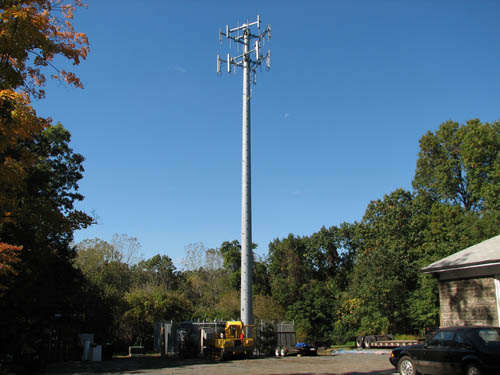Greenport’s updated electrical grid weathers first major storms

Throughout last week’s severe winter storm on the North Fork Greenport’s electric grid performed flawlessly, officials said.
“I was surprised we didn’t have any [outages],” longtime village administrator Paul Pallas said in an interview last Thursday, two days after the first major winter storm in nearly two years swept through the region.
You always expect something [to break],” he said. “No matter how good your system is — unless it’s completely underground, which ours isn’t. Ours is 99%” above ground.
“I was very pleased with the results. The system was generally designed well, but it was old,” he said of the power grid that dates back to the 1880s. “And that was really the key — it just needed to be updated.”
The update that Mr. Pallas was referring to the recently completed $5 million, multi-year project to upgrade and fortify the village’s electric grid.
The project upgraded utility poles and added heavy duty wiring to minimize damage and power outages during intense storms, and built two solar batteries — at the Third Street Firehouse and at the wastewater treatment plant.
Solar power charges the batteries, which supply energy to the Moores Lane power plant in case of an outage.
Greenport’s grid delivers electric service to residents and businesses, as well as to some areas outside the village boundaries. For decades, Greenport has been buying wholesale electricity through a long-term contract with the New York Power Authority. The electricity is delivered to the village’s grid through a circuit from a nearby Long Island Power Authority substation.
The solar batteries built as part of the project join a trio of diesel engine generators that can also generate electricity in an emergency.
Deputy Mayor Mary Bess Phillips said she noticed “a big difference” in the electrical system since the project was completed.
“There used to be calls: ‘this section was out’ or ‘that section was out,’ because there are different sections of the village that are on a particular circuit. So there were some [outage spots] that were common over on Fourth, Fifth and Sixth streets at times, because their wiring is exposed to the east wind when it comes in.”
The best part of the newly-completed upgrade, Ms. Phillips said, is that it was paid for with grant money.
“We didn’t have to pay out of our electrical fund,” she said.









